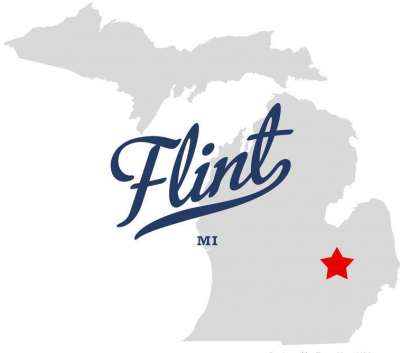At a glance
CDC established a voluntary Flint lead exposure registry to support the City of Flint and the State of Michigan in efforts to help lead exposed individuals.

Flint Lead Exposure Registry
During April 25, 2014–October 15, 2015, approximately 99,000 residents of the City of Flint, MI, were exposed to lead when the drinking water source was switched from the Detroit Water Authority to the Flint Water System (FWS). On December 14, 2015, lead contamination in the FWS was declared a state of emergency and, by January 2016, CDC—led by the Department of Health and Human Services (HHS)—assisted the City of Flint and the State of Michigan to develop a response and recovery plan.
In response to the Flint water crisis, Congress authorized funding, through the Water Infrastructure Improvements for the Nation (WIIN) Act of 2016, for CDC to establish a voluntary Flint lead exposure registry. The goals of the registry are to support the City of Flint and the State of Michigan to identify eligible participants and ensure robust registry data; monitor health, child development, service utilization, and ongoing lead exposure; improve service delivery to lead-exposed individuals; and coordinate with other community and federally funded programs in Flint. Find information on the Notice of Funding Opportunity: CDC-RFA-EH17-1704.

A four-year, $14.4M non-research grant was awarded on August 1, 2017, to a consortium of investigators from Michigan State University (MSU) in partnership with the City of Flint, the Greater Flint Health Coalition, and others. In 2021, CDC awarded MSU $3.6M to continue the Flint Registry for an additional year.
A five-year, $18M non-research grant was awarded on August 1, 2022, to a consortium of investigators from Michigan State University (MSU) in partnership with the City of Flint, the Greater Flint Health Coalition, and others. The period of performance is from August 1, 2022, through July 31, 2027.
To learn more about these efforts in Flint, contact the program below.
Michigan State University College of Human Medicine
200 East 1st Street
Flint, MI 48502
Phone: (810) 600-9180

More information is available on the Flint Registry website.

Other HHS partners
- The Center for Medicare and Medicaid Services (CMS) awarded a 3-year $300K cooperative agreement to the Greater Flint Health Coalition for "Connecting Kids to Coverage Outreach and Enrollment."
- The Health Resources and Services Administration (HRSA) awarded a 5-year $15M cooperative agreement to the Genesee County Health Department (GCHD) for "Addressing and Preventing Lead Exposure through Healthy Start."
- HRSA also awarded a 3-yr $2.6M cooperative agreement to the Association of Maternal and Child Health Programs (AMCHP) for the "Maternal Child Environmental Health Collaborative Improvement and Innovation Network (MCEH CoIIN)."
- The Substance Abuse and Mental Health Services Administration (SAMHSA) awarded a 5-yr $5M grant to the City of Flint for "Flint Resiliency in Communities After Stress and Trauma (Flint ReCAST)."
